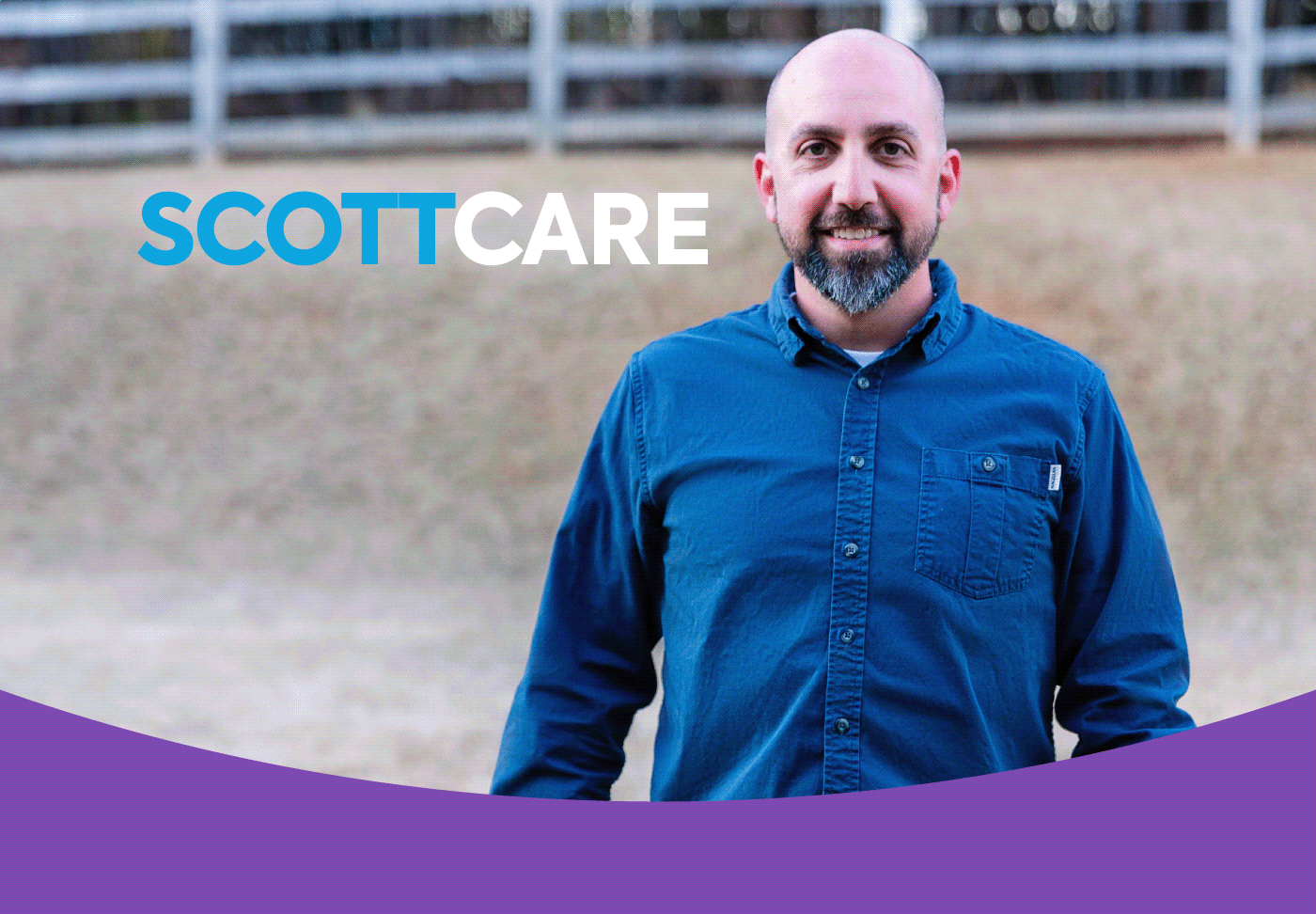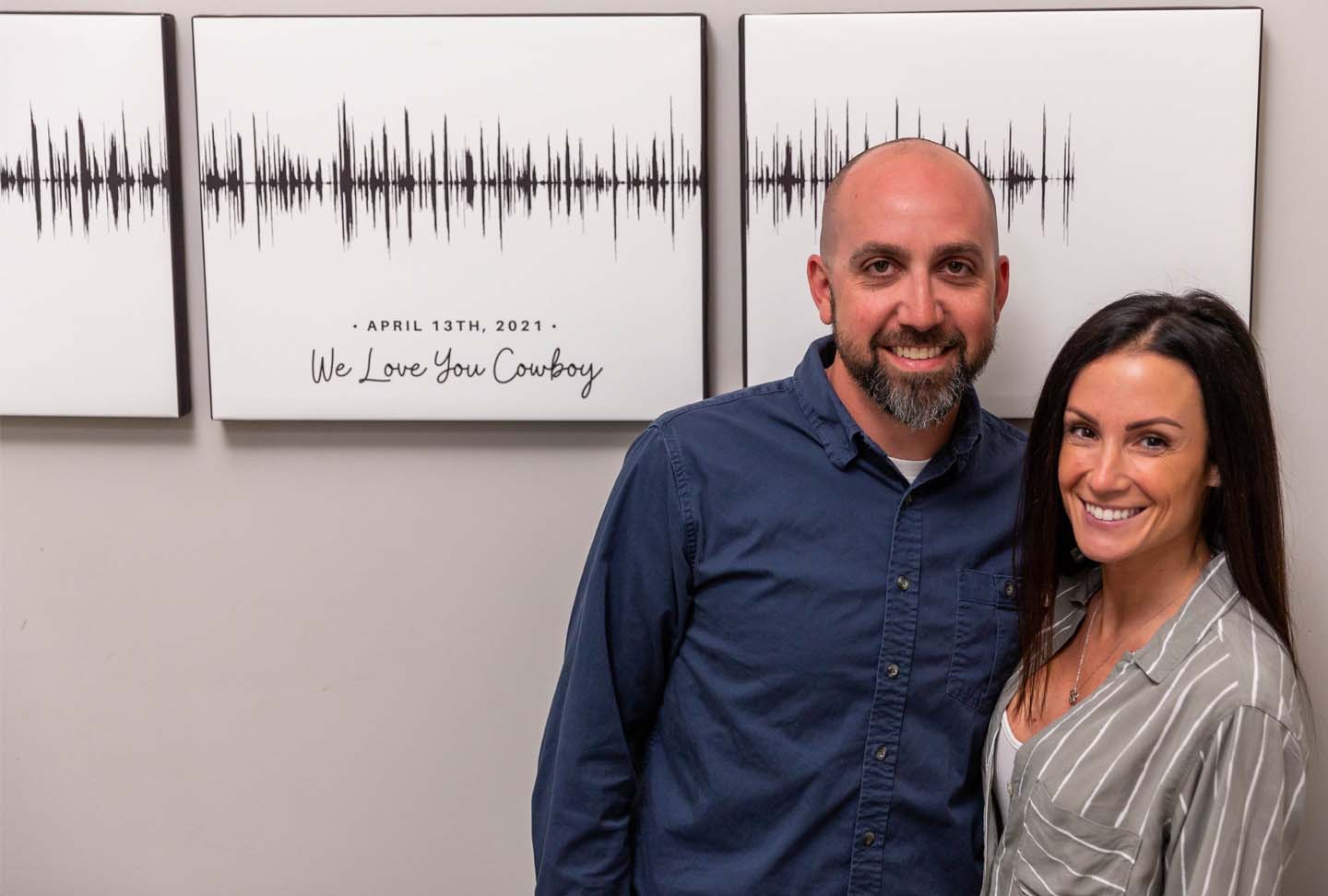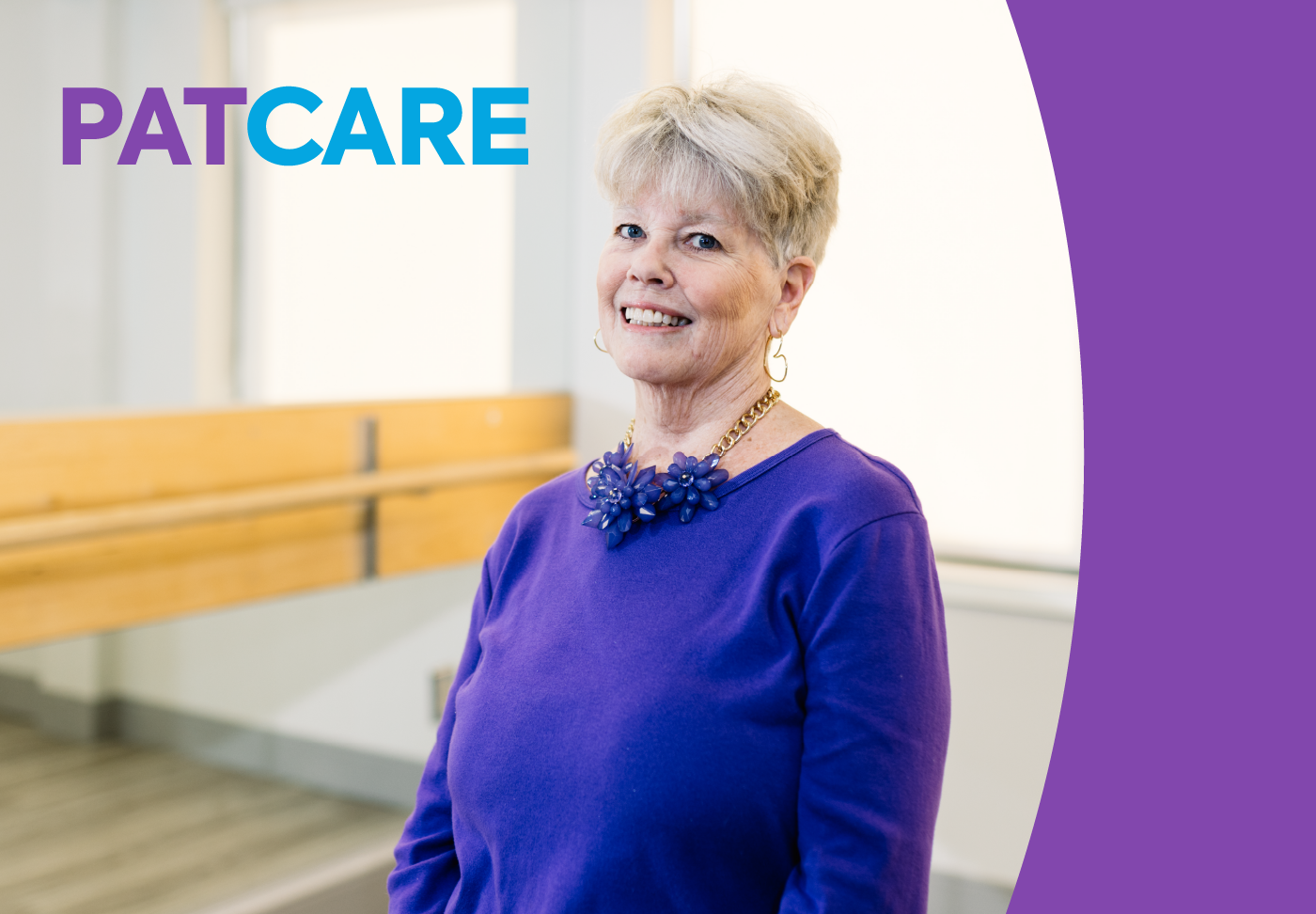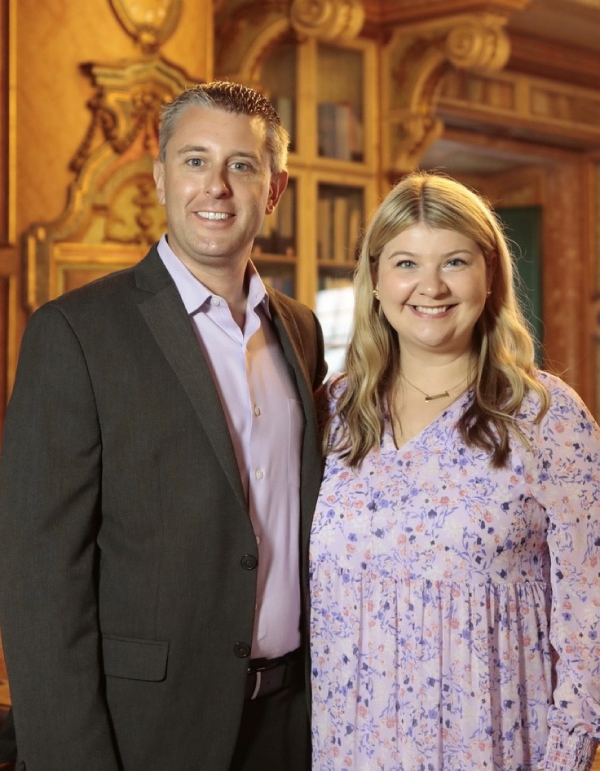Every day, Scott Hullihen’s gaze falls on a very unique piece of art hanging in his home.
To the untrained eye, the spiraling streaks across the canvas could be mistaken for an abstract painting in a museum. But for Scott, it holds a much deeper, personal meaning: hope for a cancer-free future.
A closer look reveals a puzzling QR code in the corner of the print and, when scanned, it plays the very voicemail from his Wellstar radiation oncologist that got him through the most difficult days in his cancer journey.
“The picture is his voice in soundwaves. I get to see it every day,” said Scott. “It’s the most thoughtful thing I’ve ever seen in my entire life.”
The ebbs and flows of the piece show how he conquered the highs and lows of his difficult rectal cancer diagnosis, with support from Wellstar as the constant through it all.
Just like the highly personalized art print, his expert team of physicians formed a tailored care plan for Scott, right down to his DNA.
Together with his Wellstar team, Scott beat cancer and is back to living life to the fullest.
A surprising diagnosis
Scott was a typical guy in his 30s, working in technology and spending time with friends and family.
“Everything was normal,” he said. “I’d go to sporting events or concerts.”
But his diagnosis of colorectal cancer at just 35 years old was anything but typical.
“That was shocking,” he said.
In 2020, Scott’s stomach started hurting—and it didn’t stop. He started eating better and cut certain ingredients from his diet. He regularly rode his bike for 15 miles.
“I was getting in good shape!” he said.
But the pain continued, with an urgency to use the bathroom, constipation and blood. His doctor referred him to a gastroenterologist for a colonoscopy in August. Immediately after the procedure, he learned there was a tumor in his colon.
“It was a quiet car ride,” Scott remembered sitting silently next to his mother, who had driven him there.
That Friday, a biopsy confirmed it was cancer. Scott was immediately referred to the Wellstar Rectal Cancer Multidisciplinary Program, the first and only treatment center in metro Atlanta accredited by the National Accreditation Program for Rectal Cancer (NAPRC), a quality program by the Commission on Cancer.
Getting the highest level of rectal cancer care
After the weekend, Scott met with Dr. Sahir Shroff, a cancer surgeon.
“People raved about how good a surgeon Dr. Shroff is—I learned he was one of the best in the state,” Scott said. “He saved my life.”
The board-certified and fellowship-trained surgical oncologist reassured Scott.
“This is one of the most subspecialized rectal cancer programs in metro Atlanta,” he said. “Every person with rectal cancer is reviewed at our multidisciplinary meeting to provide the highest level of care.”
Select doctors are designated to stage and treat rectal cancer patients following evidence-based guidelines. The team includes colorectal surgeons, medical oncologists, radiation oncologists, gastroenterologists, pathologists and radiologists. Higher experience in treating rectal cancer leads to better outcomes for patients.
Scott also had a nurse navigator coordinate his cancer staging and treatment. Nancy Page answered questions and scheduled important appointments, such as CT scans and MRIs as well as meetings with various specialists.
A licensed Wellstar genetic counselor was also on Scott’s team. Amy Ekwurtzel found that Scott had two genetic abnormalities that make him slightly more susceptible to colorectal cancer. This information gave the team additional clues about the best way to care for Scott.






